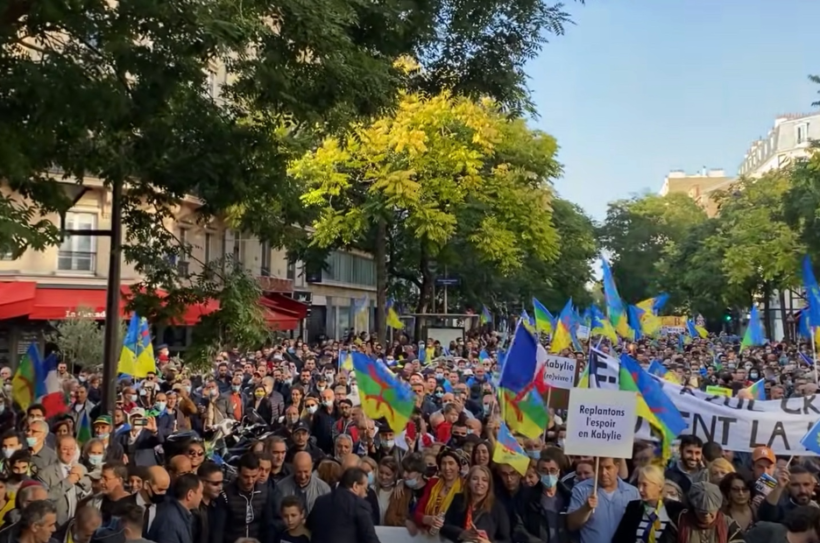Kabylia is inhabited by a people of peace who aspire to free themselves from all forms of colonialism, they fight peacefully for their freedoms and their autonomy in order to build a modern and free nation.
Kabyle activists are subject to arbitrary arrests and detentions on a daily basis. Their freedom of movement is restricted and the militants are forced to live in hiding and exile, the Kabyle Christians are also prosecuted and their churches closed.
The Kabyle people want human rights NGOs to take due account of their political aspirations, and to support them in the progressive development of their free political institutions, according to the specific circumstances of the Kabyle territories.
The scorched earth policy, gigantic, very destructive and murderous, is still applied every summer season in Kabylia. The appalling upsurge in forest fires which devastated, in August 2021 in a few days, hundreds of hectares, of which families died and others totally ruined, sowing panic in several Kabyle villages.
The Algerian political context, where it is again in the grip of destructive lightning, means that not all fires are fought in Kabylia: some of them are listed under the heading “INA”, that is to say non-intervention authorized.
The identification of the immediate causes, they are likely to remain of little weight vis-a-vis the underlying factors which are the political problems, even if it is close to Algiers, Kabylia is indeed the only region where the Berber culture, in particular the Kabyle language has been maintained, despite the policy of Arabization and Islamization carried out by the government since the independence of Algeria in 1962, without forgetting the abuses, the usurpation and the destruction of Kabyle values.
On the basis of United Nations Resolution 1514 unanimously adopted in December 1960, the Kabyle people have the legitimate right to assert their self-determination, to choose their own political status and to free themselves from any forced domination.










